|
Saturdee Opry
Links # 131: Evil White Male Edition
Presenting the Evil White Male edition of Saturdee Opry Links. Nothing but
evil white male singers. Never mind that they are from Russia, Germany, Italy,
Brooklyn---if they are white and male, they must be evil racists, right? Just
ask any respectable devotee of BLM and "white allies" or ethnic studies
majors---they'll confirm! Forgotten arias! Forgotten singers! Crazed doctors!
Moishe Miller! Encores! Patter arias! Comedy! Arcane factoids! Plus astonishing
evil white male encore! Salud.
https://www.youtube.com/watch?v=tEs4MKml75E
https://en.wikipedia.org/wiki/William_Benedict
Trivia question! What was W.C. Fields' childhood nickname! Ten points! (Answer
at bottom.)
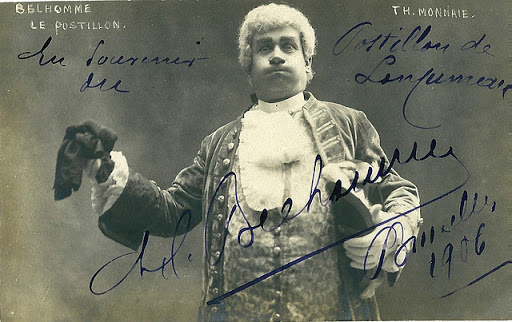
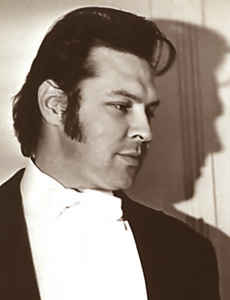
Hippolyte-Adolphe Belhomme
Vladimir Atlantov
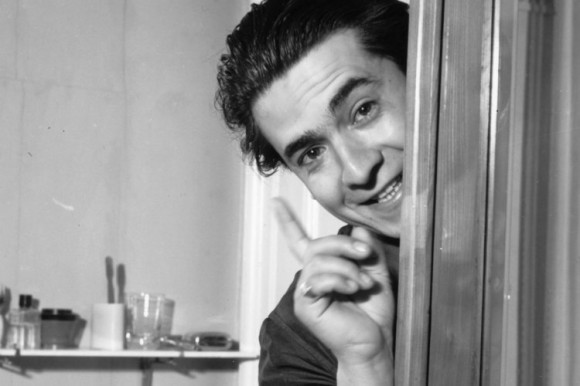
"No more encores, please." Giuseppe Di Stefano
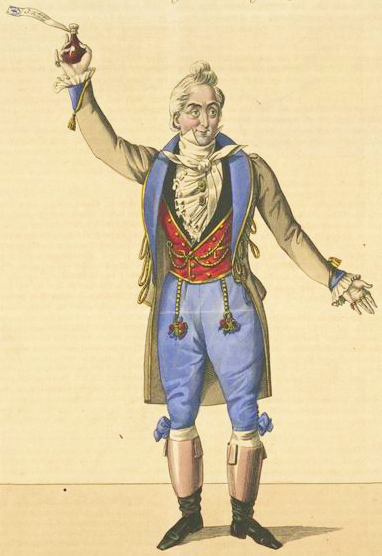
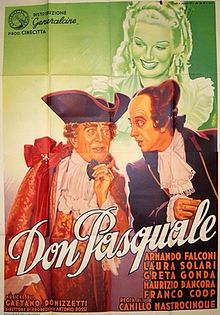 | |

Dr. Dulcamara
Dr. Malatesta (left)
Mike Leigh
Saturdee Opry Links Overture
What's that? You want brisk, sprightly?
"The Abduction from the Seraglio," Mozart.
https://www.youtube.com/watch?v=GrFbiw77_90
1.
SOL does not usually present arias without setting/synopsis/translation, but is
making an exception for this rare item. The French composer, Ambroise Thomas,
wrote a whopping twenty-four operas, but only two---the sprawling "Hamlet," and
the comedy, "Mignon," are still performed. One of the others sounds intriguing,
however, as it is a Shakespearian comedy that stars. . .Shakespeare. And several
Shakespearian characters, apparently, beginning the the rapscallion, Sir John
Falstaff. Co-starring. . .Elizabeth I! I kid not. This is "A Midsummer Night's
Dream," not to be confused with the work by Mendelssohn, and in it, Falstaff
sings, uh. . .what else? "The Song of Falstaff." So there you are. (Where are
you?) What is he singing about? What is happening at this point? Don't
know---but from listening to the music, it seems clear that the song is full of
that loveable bluster and hot air and endearing pomposity one associates with
Falstaff. Note the several passages of what must be satirical ululation, la-la'ing,
and melisma, obviously meant to convey Falstaff's odoriferous self-importance.
In short: it's fun! Add to this the fact that this was recorded in 1906 (!), and
that it sounds great---and yes, we have a winner. Finally, this is a wonderful
specimen of the terrific bass-baritone voice of one Hippolyte Belhomme (now
there's a name for W.C. Fields), or Hippolyte-Adolphe Belhomme, to be more
exact---a great star of Opéra-Comique of Paris. Ready? Take it away, Hippo!
https://www.youtube.com/watch?v=lCZaNKbXTuI
About the opera:
https://en.wikipedia.org/wiki/Le_songe_d%27une_nuit_d%27%C3%A9t%C3%A9
About the Opéra-Comique:
https://en.wikipedia.org/wiki/Op%C3%A9ra-Comique
2.
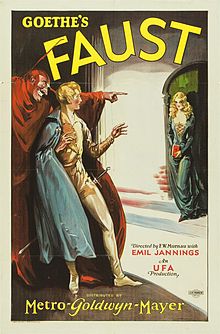
Moishe Miller of Brooklyn? You haven't heard of him? Sure you have. Moishe was
the son of tailor Abraham Miller, originally Milstein, and his wife, Lillian
(née Balaban), Jewish immigrants from Pultusk, Poland. You remember: the kid had
a stutter, but it magically disappeared whenever he sang. The only thing young
Moishe liked as well as singing was baseball, and he used the few bucks he
earned as a semi-pro pitcher to bankroll his (baritone) voice lessons. Yes, all
the stuff of myth, eh? Well, the money was better at bar mitzvahs and weddings
and Borscht Belt resorts than it was in throwing curves and fastballs. It was at
one such gig that Moishe met an agent, Moe Gale, who got the kid a job at Radio
City Music Hall and with. . .the NBC Symphony Orchestra, conducted by Arturo
Toscanini! Quite a leap from the Catskills. Gasp. And that was all she wrote.
Moishe changed his name to Merrill, and with Toscanini conducting, eventually
sang in two of the maestro's NBC Symphony broadcasts Verdi's "La Traviata" (with
Licia Albanese, in 1946), and "Un Ballo in Maschera" in 1954. Somewhere along
the line, Merrill Miller finally became Robert Merrill, duly legendary today for
his long, illustrious career---and, yes, deep love of baseball. (He died while
watching Game 1 of the 2004 World Series between the Boston Red Sox and the St.
Louis Cardinals.) So here is Mr. Merrill with that rousing bastion aria of
operatic nobility, "Avant de Quitter Ces Lieux," from "Faust," by Gounod. Sing
along with Moishe.
Synopsis:
Setting: A celebration in a public square in a German city, 16th century
Synopsis: Valentin has been called off to war. He is not worried about what will
happen to him because of the sacred medallion that he has been given. He is,
however, worried because there will no one protect his sister while he is gone.
He asks God to take care of her while he fights. He declares that he shall fight
valiantly for his country and if he dies, he prays that he will be allowed to
watch over his sister from Heaven.
https://www.youtube.com/watch?v=EzWa4Xi8inI
Translation:
http://www.aria-database.com/search.php?individualAria=371
3.
Vladimir Atlantov is sometimes referred to as "the Russian Corelli," but it's a
facile comparison that, to these untrained ears, really does not go beyond the
commonality of great tenor voices, lyricism, and power. But for the Soviet
Union, Atlantov---who is still with us at 82---would be well known in the west.
Impresario Sol Hurok heard him sing at the Kirov Opera in the mid-60's, and
immediately invited him to the Met, but. . .Premiere Alexei Kosygin, apparently,
did not approve. Nothing like politics interfering with art, I always say!
Still, Atlantov wound up with a long, great career in Russia---and also the
major houses of Europe. As for the Corelli comparison, the Russian tenor owes a
lot more to Enrico Caruso. The son of a soprano and a bass, young Vlad grew up
literally in the wings of opera houses, and his natural ability seemed to assure
a fine future. Yet after a precocious, stellar start, the tenor was stricken
with a kind of physical vocal burnout while still in his late teens, and to his
horror, found himself simply unable to sing! Teachers were perplexed, useless in
the matter, and the boy sank into despair. Along came Caruso to the rescue---in
the form of pamphlet entitled, "The Art of Singing", in which the fabled tenor
offered advice for coping with. . .strange vocal burnout. Yes, he had been
similarly afflicted. Poor Atlantov spent a full year in voicelessness and
depression before Caruso's pointers began to take hold. His voice was reportedly
never the same, so one can only wonder how powerful it must have been in its
early stages---but it was nonetheless spectacular. Amazing, eh? Here is an
abbreviated clip of the great Atlantov in 1971, singing "Recondita Armonia,"
from Puccini's "Tosca." Note the apparent effortlessness.
https://www.youtube.com/watch?v=eSk9k03-aWE
Setting: The inside of a Roman church
Synopsis: Cavaradossi is painting a Madonna for the church and he has based the
painting on a woman who prays often at the church. He sings of the differences
between his picture of a fair Madonna and the darker beauty of his love, Tosca.
Translation:
http://www.aria-database.com/search.php?individualAria=304
I suspect that this is the book that saved Atlantov---perhaps an excerpt was
availble to him as a "brochure."
http://www.belcantoitaliano.com/BELCANTO_LIBRARY_FILES/Fucito_S._Caruso_and_the_Art_of_Singing_1922.pdf
4.
There is little to be found about Vladimir Atlantov on-line. One wonders, for
example, as to his disappointment at being barred from performing in the U.S.,
at the peak of his career. He excelled in the operas of Tchaikovsky, which is
hardly surprising, but his most notable role was that of Cavaradossi from
Puccini's "Tosca." Atlantov was the principal tenor at the Bolshoi Theater for
an amazing 22 years---from 1966 through 1988---and here is rare clip
(apparently) of him singing the "flower song" from "Carmen" in 1977. His voice
has a touch of steel to it, a bright-ish gleam, and retains roundness, richness
in the "money notes." This is "La fleur que tu m'avais jetée."
https://www.youtube.com/watch?v=0wTJQMOlVyA
Setting: The inn of Lillias Pastia
Synopsis: Carmen and José have just reunited after José's stay in prison for
releasing Carmen when he was supposed to be guarding her. She has danced and
played castanets for him but in the distance, he hears the call back to the
barracks and he says he must go. She becomes angry at him for leaving her. Don
Jose then responds by singing how the flower she threw to him kept him going
throughout his stay at the prison.
Translation:
http://www.aria-database.com/search.php?individualAria=45
ANNNNND YES, here is a recording of Atlantov in his most famous role, as
Cavaradossi in "Tosca." This is a really good performance of "E Lucevan le
Stelle."
https://www.youtube.com/watch?v=vjjL31J2k8M
Summary, translation:
http://www.aria-database.com/search.php?individualAria=305
5.
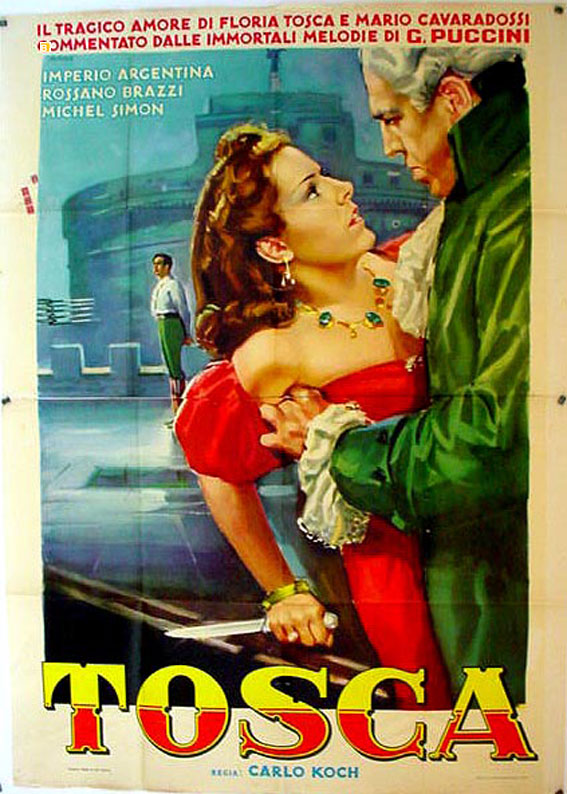
Encore! Encore! No---please, no encore! The aria so nice, they made him sing it
twice. . .Encores are long-standing operatic tradition, of course (though barred
at the Met except, for some reason, for the show-stopping"A Mes Amis," from
Donizetti's "Daughter of the Regiment.") Here is Maria Callas's favorite singing
partner, Giuseppe di Stefano, in his prime, not only as a vocalist, but as a
vocal actor. The artistry, the nuance, the emotion invested in this aria must be
pretty close to definitive. This is "E Lucevan le Stelle" ("And the stars were
gleaming") from Puccini's "Tosca," assayed perhaps in the early 50's, at the
Palacio de Bellas Artes in Mexico City. Di Stefano gamely repeats the aria,
gasp, acceding to audience demand, but to less effect, which is perhaps one of
the reasons encores are now uncommon. How do you invest more in a performance
that you've already invested everything in?
Interesting, nonetheless. (Thank you, Bonnie Tone, for this find!)
https://www.youtube.com/watch?v=N8paGhYpFrk
Setting: The ramparts of a fortress
Synopsis: Cavaradossi trades his last possession, a ring, to get a guard to take
a letter to the imprisoned Tosca. As he writes the letter, he sings of his love
for Tosca and for life.
Translation:
http://www.aria-database.com/search.php?individualAria=305
6.
Okay, kids, feel like going to sleep, do you? This sultry afternoon lulling you
into complacency? Don't let SOL disturb you! Here is a little serenade to put
you all the way under! This is the gorgeous, sunny tenor of Fritz Wunderlich,
with the curvaceous aria, "Ecco, Ridente in Cielo," from Rossini's "The Barber
of Seville." I can hear you already: zzzzzzzzzzzzzzz. What better to put one
into the Land of Nod than a lilting love song? Hell, you won't even notice that
it's sung in German, I'll bet. By the way, there aren't many clips of Poor
Fritz, who died in a freak accident at only 36, on stage in an opera---but don't
let that keep you up. (Thanks again to Bonnie Tone!)
https://www.youtube.com/watch?v=MJfBs-dOMfI
Synopsis : Count Almaviva has fallen in love with Rosina. He stands outside of
her house and serenades her.
Translation:
https://en.wikipedia.org/wiki/Ecco,_ridente_in_cielo
And, for those who prefer Italian, here is a lovely performance of same by Juan
Diego Florez:
https://www.youtube.com/watch?v=SIfz8fNQw0U
About Fritz Wunderlich:
https://en.wikipedia.org/wiki/Fritz_Wunderlich
7.
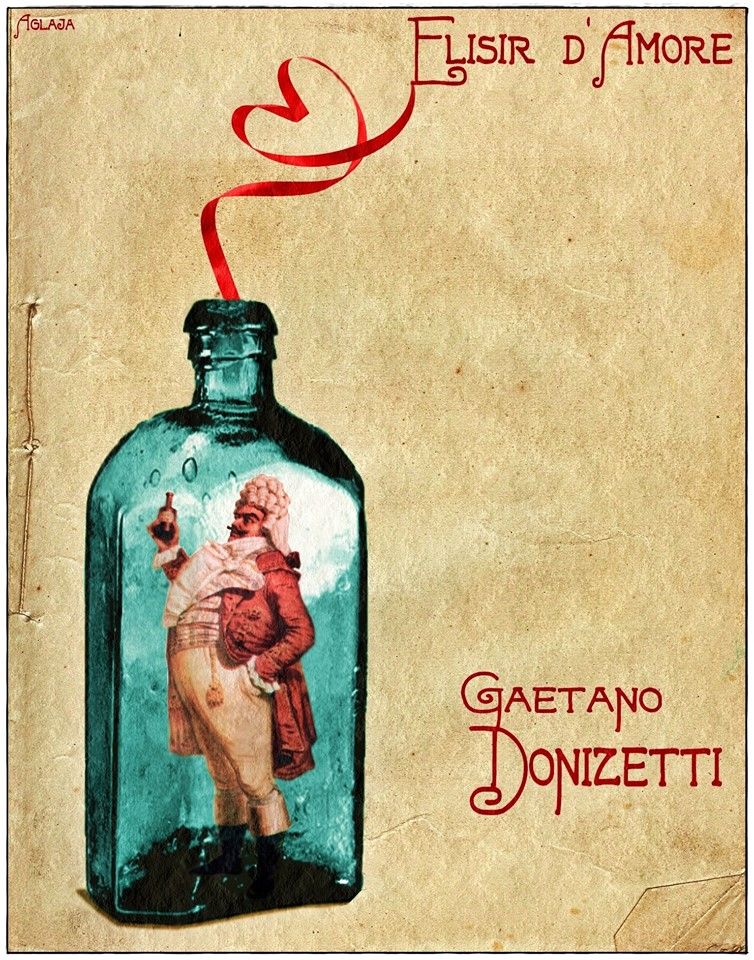
To paraphrase The Beatles, "Ring my friend, I said you'd call Dr.. . .Dulcamara?"
Sure, he was a poetic ancestor to Dr. Robert, wouldn't you say? Both are "a man
you must believe / Helping anyone in need / No one can succeed like Doctor
Dulcamara / Well, well, well, you're feeling fine / Well, well, well, he'll make
you. . .Dr. Dulcamara!" Here, from Donizetti's comic opera, "The Elixir of
Love," is the Welsh baritone, Bryn Terfel (still with us, though possibly
semi-retired, at 55---he has a four-year-old daughter), with the classic pitch
of the traveling quack, "Udite, udite o rustici."
("Listen, listen, o peasants!") What a pitch it is!
https://www.youtube.com/watch?v=j9JJ2pbWT4A
Setting: The village square of an Italian village, 19th century
Synopsis: Entering into the village square, the quack Dulcamara introduces
himself and proceeds to comically hawk his amazing potions to the crowd,
offering them to the villagers for "discount" prices.
Translation:
http://operainenglish.blogspot.com/2012/09/lelisir-damore-udite-udite-o-rustici.html
Dr. Robert
https://www.youtube.com/watch?v=niuNlPo1q9M
8.
From one mad opera doctor to another, we move from Dulcamara to Malatesta. Seems
Donizetti had a fondness for goofy quacks with four-syllable names, as Dr.
Malatesta shows up in his comedy, "Don Pasquale." If you expect me to summarize
his character, or his place in the plot, I will leave you disappointed. This is
a Marx Brothers movie, suffice to say, and this sequence is one of the goofiest
in all opera. This is the third act duet, "Cheti, cheti, immantinente," or "Say
that ten times fast." Well, not really---but that should give you the idea of
the singing proceedings at hand. Dr. Malatesta is pretending to help the
gullible, fatuous Don Pasquale into catching his new (young) wife in a
compromising meeting with a paramour. The duet between Pasquale and Malatesta is
blabbering, pattering, high-speed seeming gibberish---but is, in fact,
incredibly difficult to sing Italian. The performers’ goal, according to opera
buff Neil Kurtzmann, is to "set a new speed record every time the piece is
performed." Have a ball, kids.
Here is a fun production with San Diego Opera, with John Del Carlo as Don
Pasquale and baritone Jeff Mattsey as Malatesta.
https://www.youtube.com/watch?v=csFvGA-IY_U
And, WITH ENGLISH SUBTITLES, here is a classic, if slower, rendition with Sir
Geraint Evans as Pasquale, and Russell Smyth as Malatesta.
https://www.youtube.com/watch?v=vXNjtv-8MDI
TRANSLATION:
https://medicine-opera.com/2016/06/cheti-cheti-immantinente/
About the "patter song:"
https://en.wikipedia.org/wiki/Patter_song
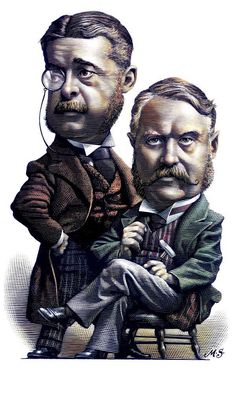
Sullivan and Gilbert
9.
What? That "patter song" in selection # 8 seemed somehow familiar to you? You
think you've heard madcap "patter songs" somewhere before, but can't quite place
it? Or you were simply so enthralled, so prostrate with gratitude to SOL for
filling a few moments of your day with sheer delight, that you demand more? (I'm
sure it's the latter.) All right, naifs and jaded alike, here you are---a
familiar little excerpt (I expect) from the opera (yes, opera), "The Pirates of
Penzance, " by Arthur Sullivan and W.S. Gilbert. (Highly recommended: a superb
film based on their career by Mike Leigh, "Topsy-Turvy.") Do you imagine
yourself to the the very model of anything? This guy did. (By the way, Mike
Leigh directed this production!) With Enkwish sukibles.
https://www.youtube.com/watch?v=Rs3dPaz9nAo
FINAL BOW:
Okay, boxing fans, we're closing out our Evil White Male Edition of Saturdee
Opry links in a way we never have before. Yes, it's an SOL first! We are closing
with an obscure duet from an obscure opera for which we were unable to locate a
translation, or even quite determine what the damn thing is about. Why? Because
this selection is just so. . .great! We opened today's edition with baritone
Hippolyte Belhomme singing a little known comic aria, and we close with the
same---except Hippo is joined in duet by a tenor colleague, Monsier Berthaud.
Trust me, folks, this is fun---it is rousing in an inimitably French way, and it
also features some of the crazed elan of the patter aria (see posts 8 and 9.)
This is more evidence that you don't have to know what "they're singing about"
in order to enjoy opera. This is "Il me faut céder ta maîtresse," or "I must
give up your mistress!"---which should give a clue as to the burlesque plot at
hand. This is from the hit comic opera by Adolph Adam, "The Chalet," premiered
September 25, 1834 by the Paris Opéra-Comique, so loved that it reached 500
performances by 1851. Prendre Plaisir!
https://www.youtube.com/watch?v=RSqHXxt5TUA
About the opera:
https://en.wikipedia.org/wiki/Le_chalet
Saturdee Opry Links Encore!
What? What? "Be My Love" with a Russian accent? Da! This is the great tenor,
Vladimir Atlantov, who quite obviously---like Pavarotti, Domingo, Carreras---was
an admirer of Mario Lanza. Rather touching, really, that this gentleman, who was
denied a chance to sing in the USA by his government, would do such a loving,
dedicated tribute to Lanza. He does his best to emulate Mario's every note---and
by God, he does so very ably. Even though it was late in his career. я
приветствую вас! (Ya privetstvuyu vas!)
https://www.youtube.com/watch?v=vvAetbNzpRo
ANSWER TO TRIVIA QUESTION: "Whitey." Given to Fields because he had very light
blonde hair as a kid.
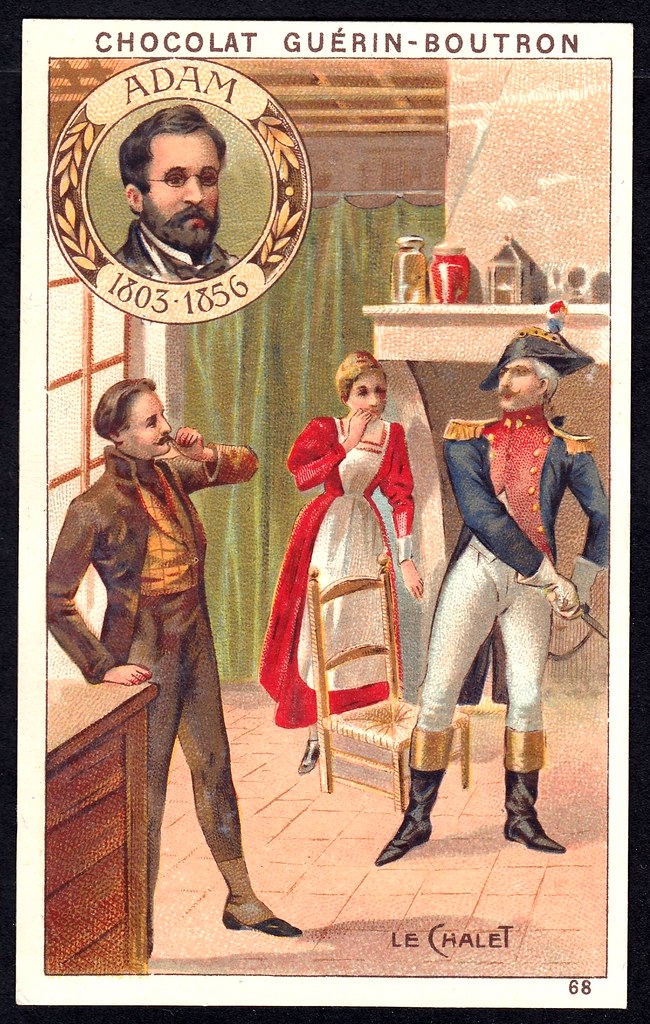
Back to Opera Links
Back to Home Page
|



